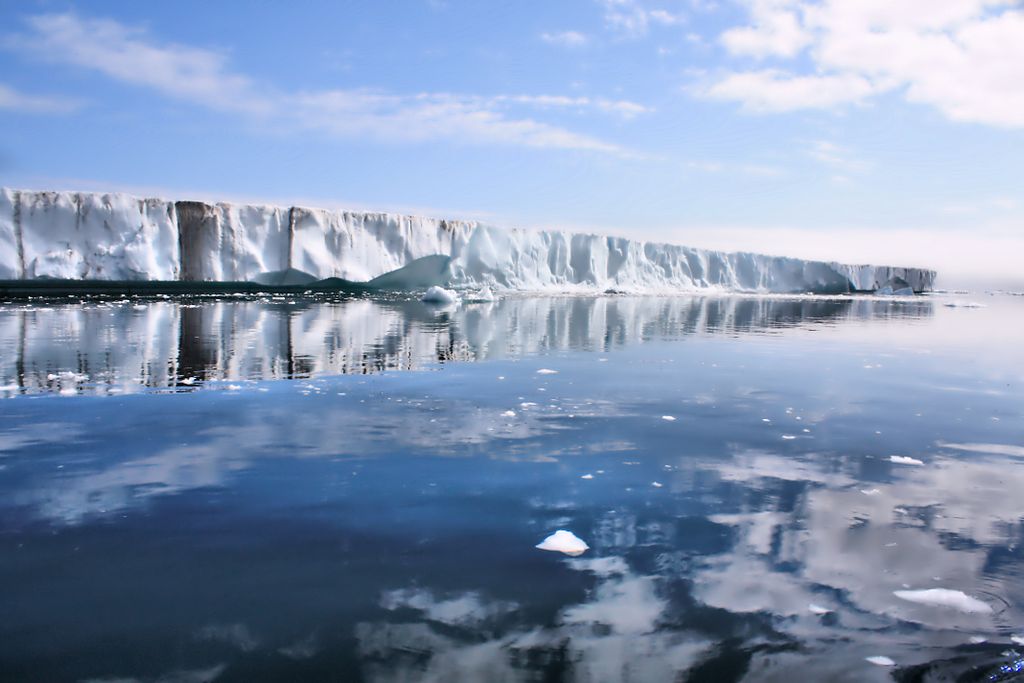Climate scientists have issued stark warnings over the widespread risk of more extreme weather events, after rain fell on the highest peak of the Greenland ice sheet for the first time on record in August.
—
The semi-autonomous Danish territory, known for its below-freezing temperatures and polar climate, saw above-freezing temperatures and wet snow for the third time in less than a decade, as seven billion tonnes of rain poured across the island for three consecutive days – the heaviest since records began in 1950.
The US Snow and Ice Data Centre (NSIDC) said rain was observed for “several hours” on August 14 at a measurement site 3,216 metres (10,551 feet) above the ice sheet. By August 15, the amount of ice lost was at least seven times higher than the usual daily average for that time of year.
“This is an extreme event as it may never have happened before,” Martin Stendel, a researcher at the Danish Meteorological Institute, told AFP. “It’s probable that this is a sign of global warming.”
Second in size only to the Antarctic ice sheets, 80% of Greenland is ice-capped. As global heat waves intensify and air temperatures over the ice rise, the rate of ice loss further accelerates.
In July 2019, a high-pressure system that caused a blistering heat wave across Europe turned over half of the surface of the Greenland ice sheet to slush, after combining with another high-pressure system from the Arctic that had settled over Greenland. Such heat waves were particularly impactful as they arrived after mild, dry winter and spring seasons that primed the ice sheet to melt.
When solar radiation hits snow and ice, approximately 90% of it is reflected back out to space. As more snow and ice melt, the ocean and land absorb more incoming solar radiation, releasing more heat back into the atmosphere, enhancing the severity of the effects of global warming as a result.
Record-breaking rainfall is now the latest in a string of extreme weather events to hit the North Atlantic island in recent months, yet another worrying signal of climate change’s growing threat to the planet.
In July, Greenland’s ice sheet experienced a “massive melting event” during a heat wave that saw temperatures soar 10 degrees above seasonal norms, losing at least 8.5 billion tonnes of surface mass in a single day – enough to submerge the entire US state of Florida in five centimetres of water.
“Greenland, like the rest of the world, is warming rapidly,” says Ted Scambos, a senior glaciologist at the University of Colorado Boulder in an interview with The Washington Post.
“We now see three melting events in a decade in Greenland – and before 1990, that only happened about once every 150 years. Now we have rainfall, in an area where rain never fell,” he explained, adding how such an event would be difficult to imagine without the influence of climate change. Scientists have warned should the entire Greenland ice sheet melt, it would lead to a global sea level rise of about 6 metres (20 feet).
“What’s going on is not simply a warm decade or two in a wandering climate pattern,” Scambos said. “This is unprecedented.”
You might also like: Will Greenland Ditching Oil Reshape Arctic Climate Politics?
Within a month after rainfall was recorded, the remnants of Hurricane Larry – a powerful tropical storm that remained intact so far north, pummelled eastern Greenland with a rare winter blizzard triggering heavy snowfall of up to 18 inches, capping off a season of severe climate events in the region.
In response to rapid changes in weather patterns and extreme weather events, Greenland’s government in July announced it would scrap all plans for future oil exploration on environmental grounds, ending a 50-year ambition to become an oil-producing nation. The socialist-led government, in office since April, has placed climate change mitigation at the centre of its legislative agenda.
In a statement, the government said it decided to “cease issuing new licenses for oil and gas exploration,” in a step taken “for the sake of our nature, our fisheries, our tourism industry, and to focus our business on sustainable potentials.”
“The future belongs to renewable energy, and in that respect we have much more to gain,” it added. “We want to take co-responsibility for combatting the global climate crisis.”
As the COP26 climate summit looms, Greenland’s decision to suspend oil exploration is one that other nations must boldly follow suit, if not already. European nations like France and Spain, whose governments’ have already enacted laws banning oil and gas production in all its territories by 2040 and 2042 respectively, present the dire need for world leaders to continue implementing similar hardline policies and initiatives to confront the escalating environmental crisis.

















